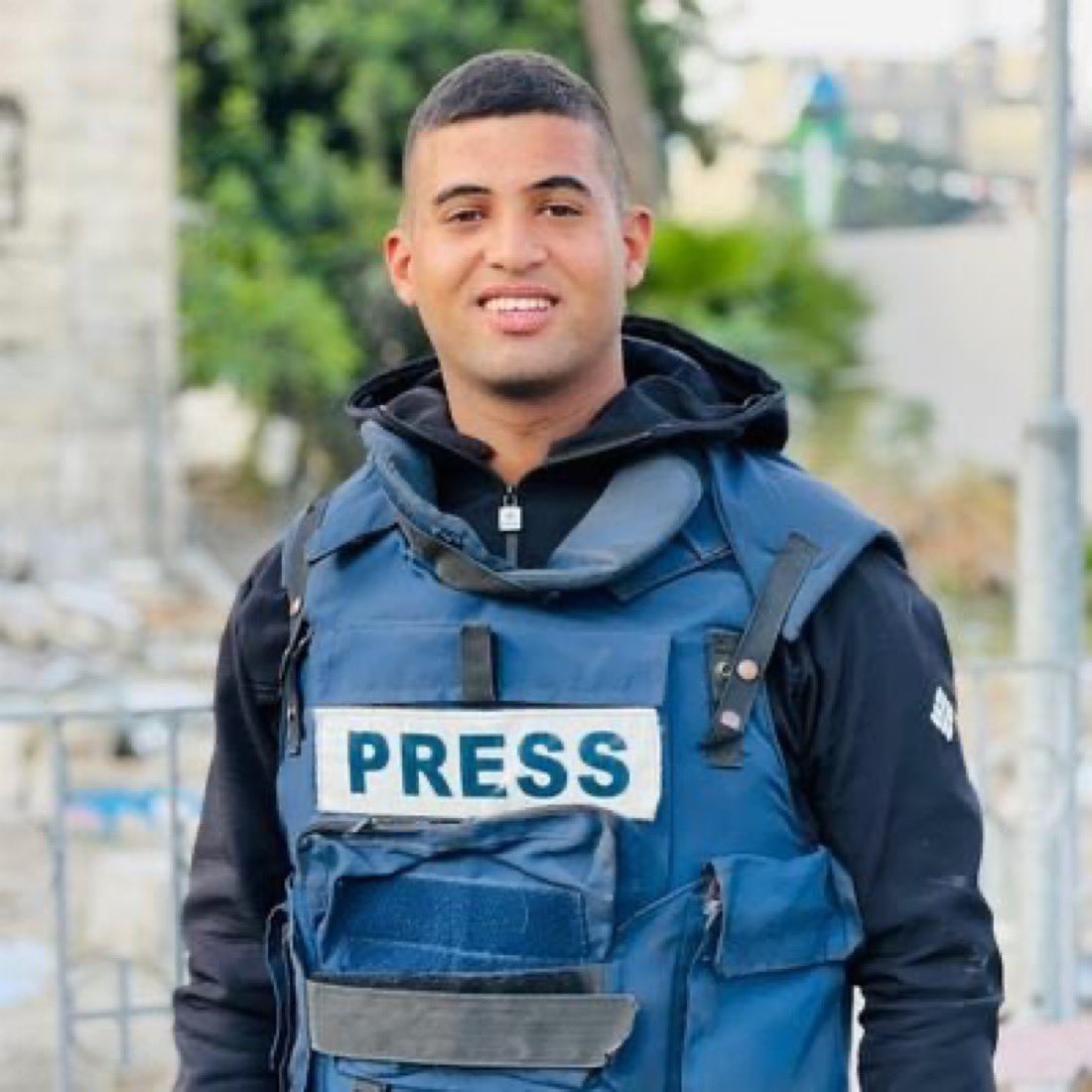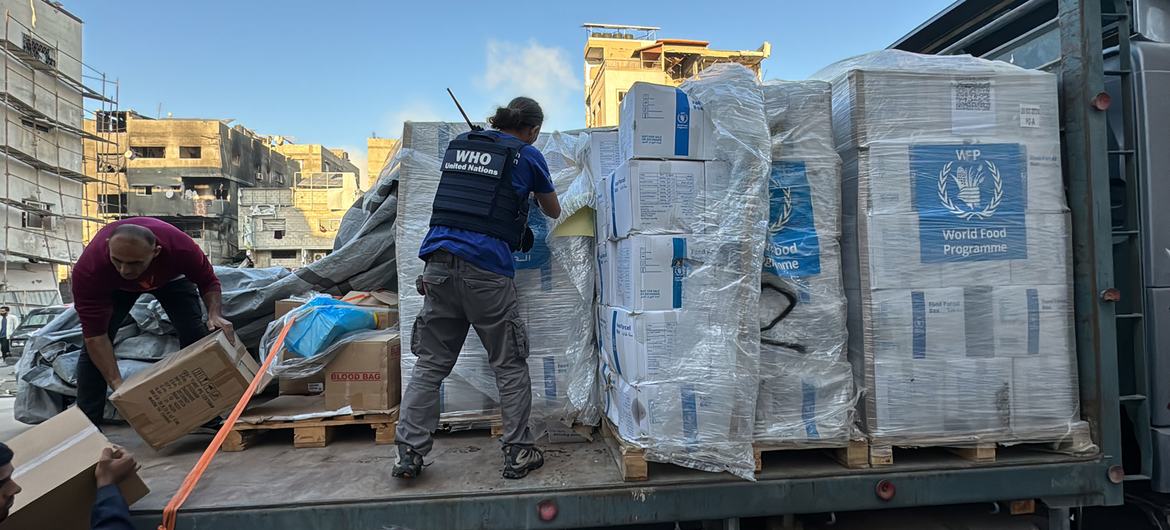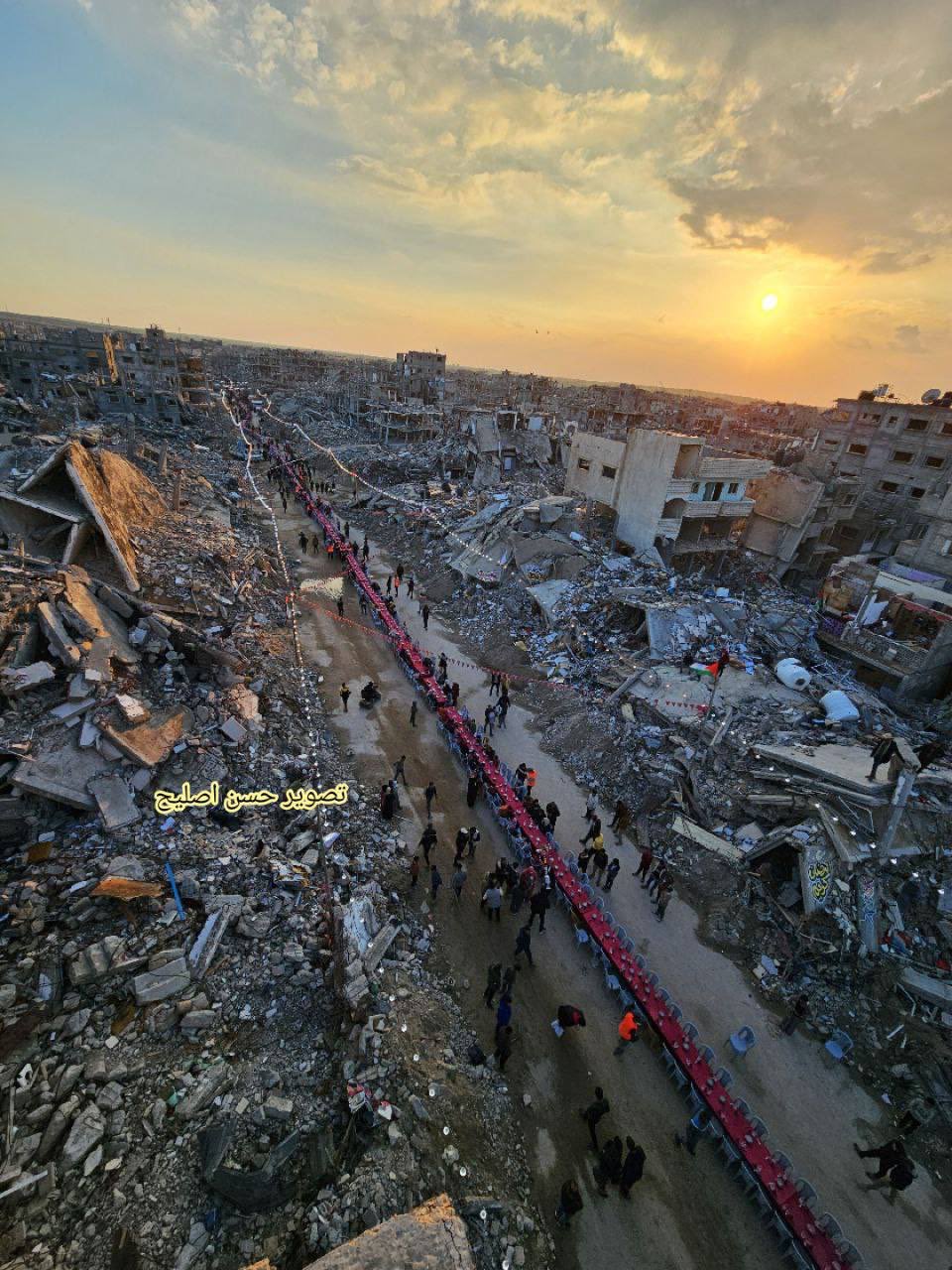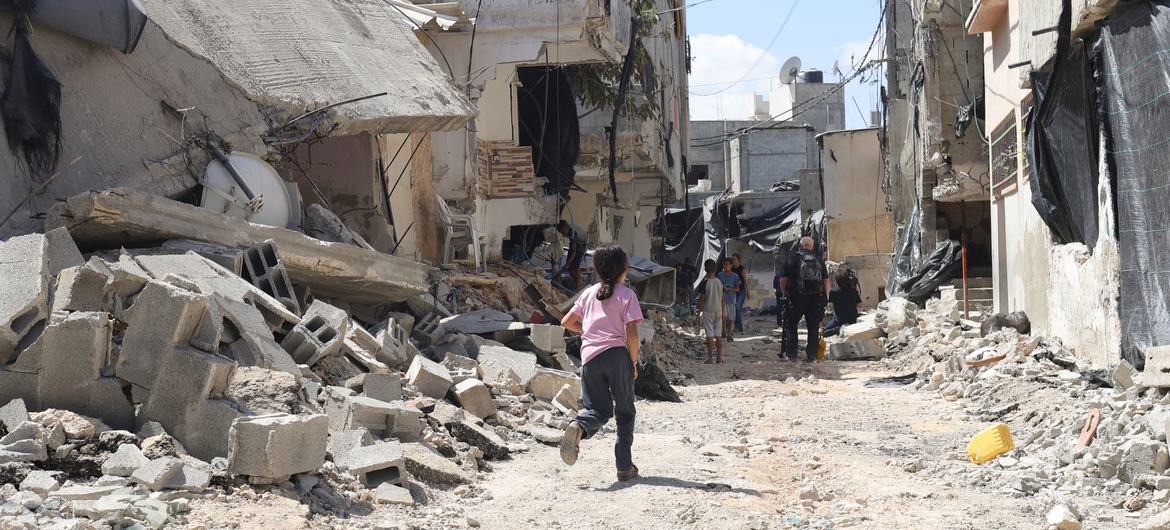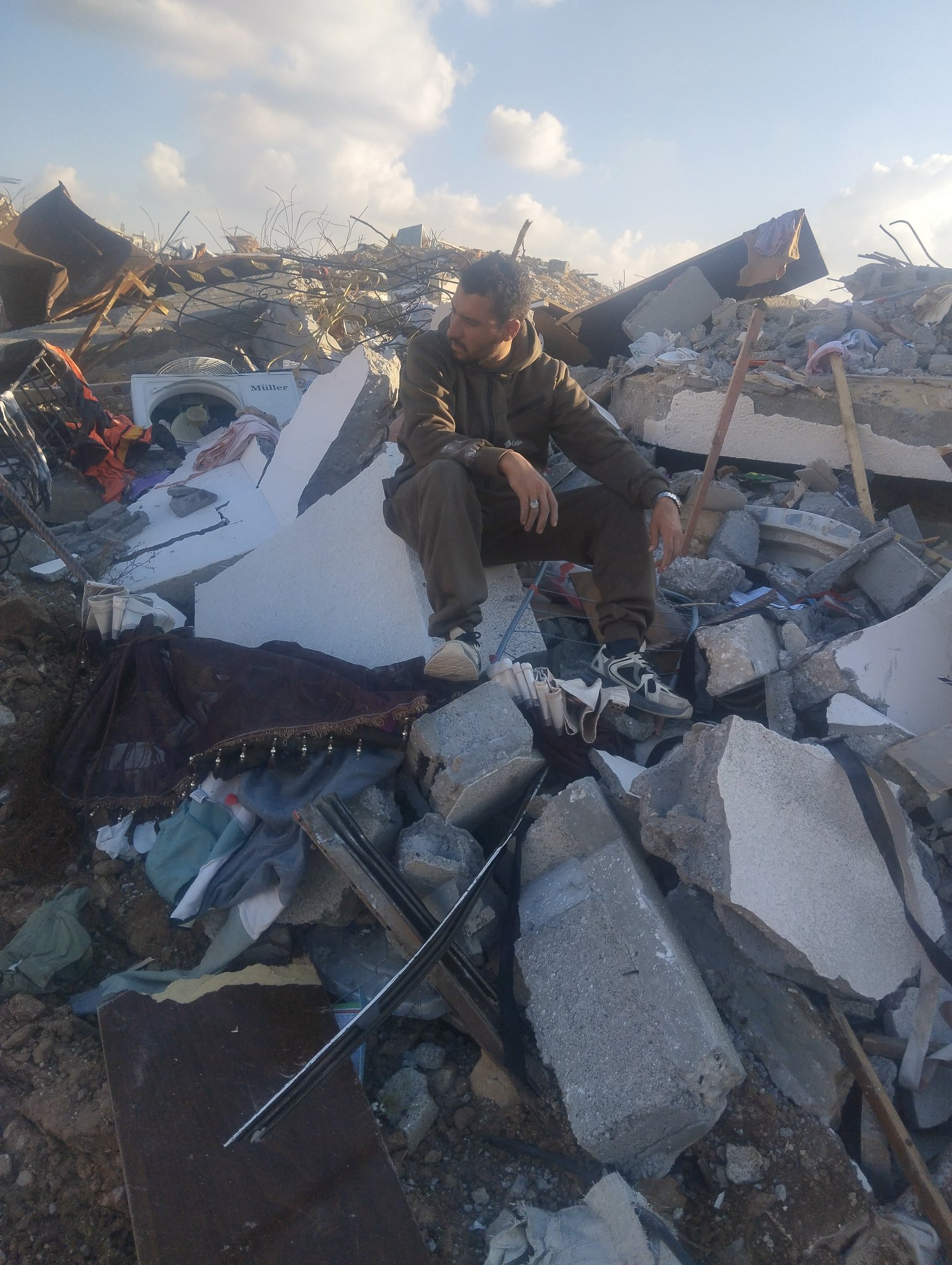Israeli forces continue to attack Gaza residents in violation of the terms of the ceasefire agreement, the first phase of which took effect on 19 January. Airstrikes and gunfire targeting civilians and their property continue in various areas of Gaza, resulting in hundreds of deaths and injuries. Meanwhile, the entry and distribution of humanitarian aid – particularly medical equipment, hospital supplies, tents, mobile homes, and essential machinery for rubble removal and body recovery – remains severely hampered. As a result, civilians face deteriorating humanitarian conditions due to the widespread destruction of infrastructure and essential services. In Rafah, displaced residents continue to be prevented from returning to their homes, while Israeli forces are systematically demolishing both private and public buildings in the city.
Israeli forces redeployed along Gaza’s borders in the first phase of the ceasefire agreement continue to maintain absolute control and a heavy military presence in most areas of Rafah in southern Gaza for the 10th consecutive month. Field reports indicate that since the invasion of Rafah in early May 2024 and the seizure of the Palestinian side of the Rafah crossing, the Salah al-Din axis (Philadelphi Corridor), and other parts of the city, Israeli forces have systematically destroyed infrastructure. Explosions and the sound of military machinery remain constant on the outskirts of the city, while residents are still barred from returning to most areas. The majority of Rafah’s displaced population remains in makeshift tents in central Gaza and in Al-Mawasi, Khan Younis.
According to information gathered by Al Mezan, Israeli forces have not kept within the designated areas outlined in the ceasefire agreement and continue to maintain positions deep inside Rafah – more than one kilometer inside the city center, extending to the eastern garage area, the Palestinian-Egyptian border to the south, and the eastern perimeter fence. These areas remain highly dangerous, where any movement is met with artillery fire, sniper attacks, and aerial bombardment.
According to the Rafah Municipality, 200,000 of the city’s 300,000 residents are still unable to return. No organizations have been able to access many of the areas that are still under Israeli control, including Abu Al-Saeed in Tal Al-Sultan – stretching from the coast to the Rafah Crossing – as well as neighbourhoods deep within the city, such as Al-Awda and Al-Najma squares. Of Rafah’s total area of 60,000 dunams, 60% has been declared a restricted and highly dangerous zone.
More than 90% of Rafah’s neighbourhoods have been completely or partially destroyed, with severe damage to residential buildings, roads, and essential public infrastructure – including health, government, and commercial facilities. The damage is particularly concentrated in the southern and western parts of the city, where six out of fifteen neighbourhoods and five refugee camps have been completely levelled. In addition, nine medical centers were destroyed, including the Abu Yousef Al-Najjar Hospital – the only government hospital in Rafah – the Kuwaiti Hospital, and the Indonesian Field Hospital. Approximately 70% of sewage and water pumps have been destroyed, while electricity and communications networks have nearly totally collapsed. The amount of rubble in Rafah is estimated at 20 million tons, with many bodies still believed to be trapped beneath it.
According to the Gaza Ministry of Health, Israeli forces have killed 111 civilians and injured 916 others since the ceasefire came into effect. The Rafah Municipality reports that approximately 40% of these casualties occurred in Rafah, as residents attempted to check on their homes and agricultural lands. The most recent victim, Hanaa Tawfiq Suleiman Hassanein (Al-Ghouti), was killed on 21 February 2025 when an Israeli tank fired at her home in the Al-Jeneina neighborhood, in the eastern part of Rafah, shortly after she returned home.
Mr. Mohammed Hassan Abu Sultan, 35 years old, married and a father of two, shared his experience of attempting to return to his home in Rafah:
“In early May 2024, my family and I were forced to flee to Deir al-Balah, and later to Al-Mawasi, Khan Younis, where we struggled to live in a tent with meager resources. When the ceasefire was announced on 19 January 2025, I was overjoyed, believing that I could finally return home and leave the hardships of displacement behind. But the next day, I discovered that the Israeli forces had not completely withdrawn from Rafah. A few days later, I tried to check on my house in the Al-Jeneina neighbourhood. When I arrived in Rafah, I was shocked by the extent of the destruction. Before I even reached my neighbourhood, I and others who were going to inspect our homes came under fire. I barely escaped. I later learned that the gunfire came from an Israeli crane positioned south of Al-Jeneina, with tanks stationed on nearby sand dunes. Every day I hear of more civilians being killed or injured as they try to check on their homes. I am still living in a tent in Al-Mawasi, Khan Younis, enduring the bitter cold and poor conditions, waiting for the full withdrawal of Israeli forces so that I can return to my home – even if it has been destroyed.”
Similarly, Mohammed Mahdi Mousa Al-Dawoudi, 38 years old, married and a father of four, recounted his attempt to return to his home in Rafah after the ceasefire took effect:
“On 28 May 2024, my family and I, like many others, were forced to flee our home in the Tal Al-Sultan neighbourhood of Rafah due to intense bombardment and the advance of Israeli forces. We took refuge in a small tent in Al-Mawasi, Khan Younis, where we endured displacement and harsh living conditions. The ceasefire was announced on 19 January 2025, after we had waited for several months to return home. I finally went back to check on my home, but when I arrived in Tal Al-Sultan, I was horrified to see entire neighbourhoods reduced to rubble. As we inspected the aftermath of the bombardment in the area, Israeli forces positioned along the Philadelphi Corridor (the Egyptian-Palestinian border) opened fire on us. I barely made it back to Al-Mawasi. I later learned that most Rafah residents are unable to return due to Israeli gunfire and military presence in the eastern and southern parts of the city. Many civilians have been killed trying to reach their homes. I remain displaced in a tent, struggling to survive the freezing temperatures, waiting for the Israeli forces to completely withdraw so that I can return to what remains of my home.
As of the time of this press release, Israeli forces continue to maintain control over most areas of Rafah, attacking residents with gunfire and other weaponry, particularly those attempting to return to their homes. The ongoing Israeli operations include the widespread demolition of homes and infrastructure, especially in the Al-Awda and Tal Al-Sultan neighbourhoods, in what appears to be a deliberate effort to alter the city’s landscape and render it uninhabitable.
Al Mezan unequivocally condemns Israel’s ongoing crimes, perpetrated in furtherance of the continuing genocide in Gaza, particularly in Rafah. We call on the international community to take urgent and concrete measures to end the genocide, stop the systematic destruction of Rafah, and ensure the safe return of displaced residents. Immediate steps must be taken to hold those responsible accountable, including full support for the International Criminal Court and other accountability mechanisms, the imposition of a two-way arms embargo on Israel, and targeted sanctions against individuals and entities complicit in these crimes. The international community must also review and suspend bilateral agreements and diplomatic ties that enable Israel’s violations, work toward dismantling the unlawful occupation, and uphold the Palestinian people’s right to self-determination.
Reliefweb

